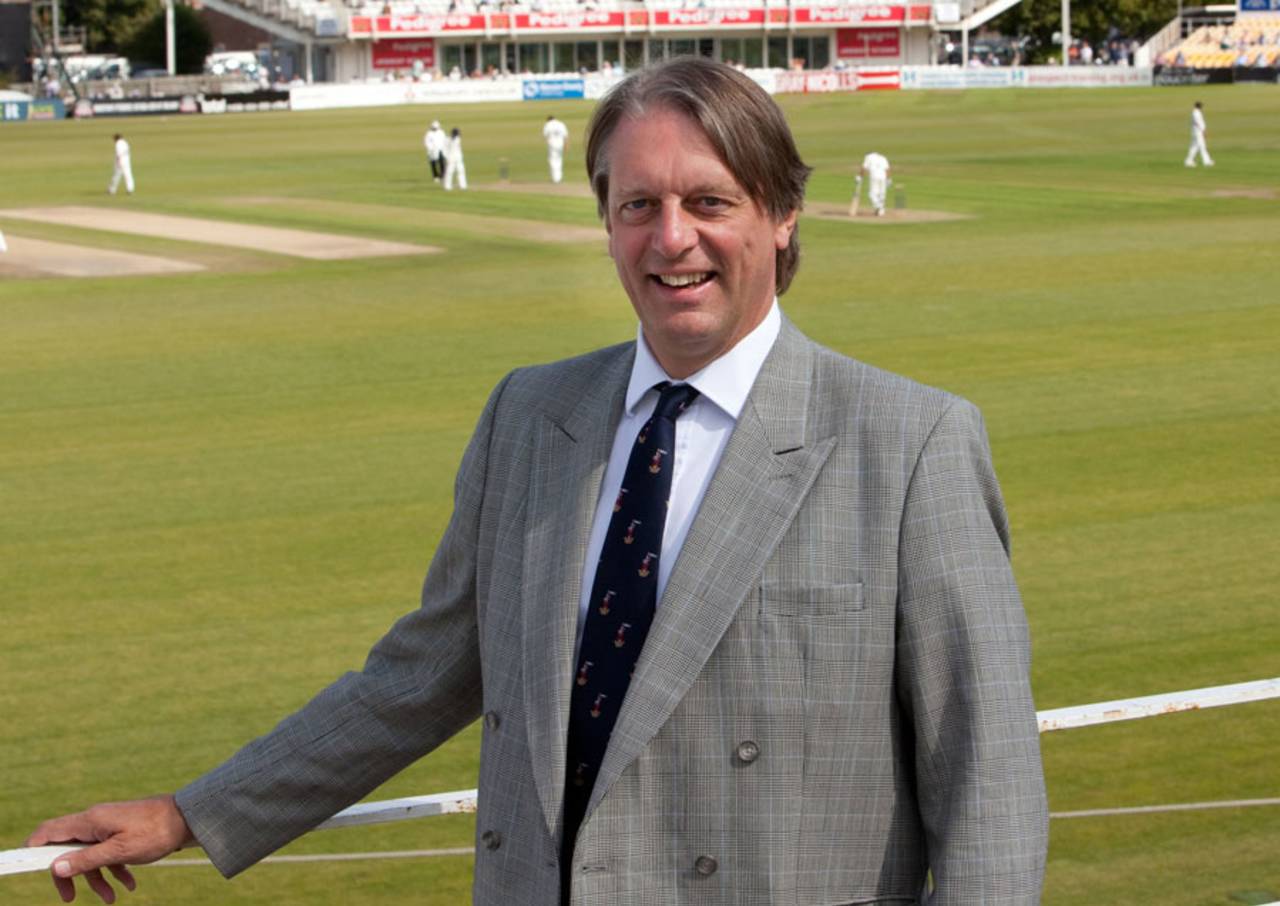Giles Clarke has marked the end of his reign as chairman of the ECB with an uncompromising attack on secret plans to set up a rebel T20 league that he insisted, if it came to pass, could severely damage the fabric of world cricket.
Clarke, who as ICC's finance and commercial chairman will now be at the forefront of attempts to thwart any
plans by Essel Group, told in a farewell speech at Lord's that has now been made public of how the simple invitation to a formal opening of a new pavilion on a village ground in Somerset had further strengthened his conviction that cricket could not be "traded as a purely commercial activity" and that revenue must benefit the widespread health of the game.
The Essel Group was also the organisation that began the rebel ICL in 2007, a T20 league that preceded the IPL but ended in less than two years after its players were banned from mainstream cricket by the cricket boards of various countries under instruction from the BCCI and ICC.
To add fuel to the fire, the Essel group owns Ten Sports, which holds TV rights from several ICC Full Members - rights that are now increasingly contentious.
Clarke openly questioned their validity. "I cannot see, as ICC finance and commercial chairman, why anyone should benefit financially from TV rights ownership on one hand, and then expect to be allowed to attack the game financially on another," he said.
The ICC has responded to the perceived threat to the fabric of the game by setting up a committee comprising its three top officials - chairman N Srinivasan, Wally Edwards from Cricket Australia and Clarke - to present an urgent report.
"I had the privilege of opening the new pavilion at Easton-in-Gordano cricket club last week, whose roof had been blown away by a storm and the interior destroyed," Clarke told the ECB's annual meeting last week.
"This small village ground lies behind the local pub. The community, supported by other local clubs, had gathered together and successfully raised funds to rebuild it, which they had originally thought not possible. The ECB had contributed funds to help from our weather disaster fund. As a friendly match was being played in this timeless surrounding, I felt the following strongly.
"Without volunteers, there is no cricket developed anywhere. It is not something to be traded as a purely commercial activity"
"The game will give a simple message to those who seek to establish rebel leagues. Without volunteers, there is no cricket developed anywhere. It is not something to be traded as a purely commercial activity.
"It is ingrained in the hearts, minds and cultures of men and women across the globe and in our multicultural societies. Volunteers in cricket do not want to work for profit-seeking enterprises, and nor will we allow greed to take away from the game its values, and the funds which support its grass roots and its future."
Clarke's "farewell" address - he has now moved sideways to become ECB president - was, as would be expected, an unapologetic assertion of the progress made during his decade as the most dominant figure in English cricket.
He has attracted heavy criticism for his part in the shake-up of world cricket which saw the "Big Three" - India, Australia and England - take more control as well as a larger share of revenue but he used his speech to emphasise his commitment to nurturing the wider community of English cricket.
The ECB was more financially stable and had stronger relationships at all levels of the game, he contended, including ethnic minority leagues, women's cricket and the recreational game.
"I especially remember the Pakistan v Australia neutral series in 2010, and some 23,000 fans, mainly Brummies of Pakistani ethnic origin, some of whom I met walking round the ground. They were revelling in watching their heroes, and all firmly told me 'I am supporting Pakistan, but I want my son to play for England'.
"For Moeen Ali's father, that magical moment has come true. There will be many more to follow him. The ECB has established good relations with many ethnic minority leagues. It is, however, an issue for our own society. Ethnic minorities do not all want to belong to or participate in all our traditional competitions, and are sometimes happier in their own.
"The ECB has begun to embrace these bodies, not in terms of telling them what to do, but rather saying we are here, this is what we can do for you. Is that of interest? Would you benefit? And, in many ways, that is what our society has to do. The Indian supporters who booed Moeen Ali need to feel they are wanted and part of our society. Cricket has recognised this. We have started a long innings, but one we need to play well for the growth of our game."
David Hopps is the UK editor of ESPNcricinfo @davidkhopps
